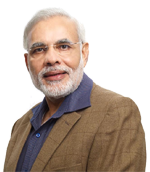 |
| Indian Prime Minister Narendra Modi |
As Indian Prime Minister Narendra Modi travels to the U.S. to meet with officials, Doctors Without Borders (MSF) has one message for him: Don't back down on drug patents.
The way the medical charity sees it, India's patent-busting policies are critical to keeping med prices down. But that's an unpopular goal with Big Pharma, which has been frustrated time and again by sales-hurting moves in a region it's tabbed for serious growth. And MSF warned Modi that U.S. officials would try to lobby him over those very moves.
"India's patent law and practices are favorable to public health, were put in place through a democratic legislative process, and are in line with international trade and intellectual property rules," MSF's Meena Narula Ahamed and Unni Karunakara wrote in an op-ed in Foreign Policy. "Every country has the right to set policies that balance private business interests with public health needs."
But from pharma's point of view, some of India's recent patent moves have been out of line. Drugmakers have taken issue with compulsory licenses, which allow generics producers to get to work making copies of meds Indians can't afford--regardless of their patent status. India granted the first such license, on Bayer's Nexavar, to Natco Pharma back in 2012, a move the German company said "damages the international patent system and endangers pharmaceutical research."
And more could be on the way. In March, Reuters reported that an Indian committee was reviewing up to a dozen on-patent therapies to see whether additional compulsory licenses could be issued. Ranjit Shahani, vice chairman and managing director of Novartis' ($NVS) India unit, told the news service at the time that "the constant threat of compulsory licenses hangs like a Damocles sword over patent-holders."
Dramatics aside, the U.S. has kept an eye on the issue, placing India on its Priority Watch List--a distinction for those countries whose IP-protection practices Washington believes bear close monitoring. And if the government goes one step further, downgrading the nation to a Priority Foreign Country, it could trigger sanctions. That's a move the Pharmaceutical Research and Manufacturers of America (PhRMA) has been advocating.
But MSF urged Modi to stay strong in the face of any U.S. pressure. "The world can't afford to see India's pharmacy shut down by U.S. commercial interests," Rohit Malpani, director of policy and analysis for MSF's Access Campaign, said in a statement.
- read MSF's release
- see Reuters' take
Special Report: Top 10 Drugmakers in Emerging Markets